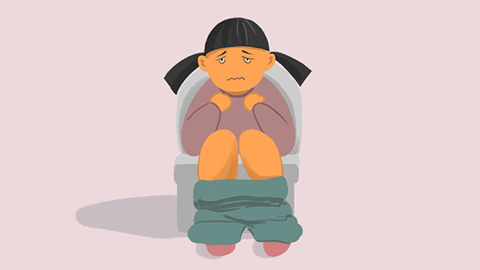What precautions should be taken for frequently swollen and painful hemorrhoids?
Generally speaking, hemorrhoids refer to piles. When hemorrhoids often become swollen and painful, attention should be paid to dietary regulation, maintaining anal hygiene, avoiding prolonged sitting or standing, developing proper bowel habits, and avoiding excessive straining. Detailed explanations are as follows:

1. Dietary Regulation
Spicy and irritating foods, such as chili peppers, Sichuan pepper, and ginger, should be avoided. These foods can irritate the mucous membranes of the rectum and anus, causing local vasodilation and increased congestion, thereby worsening swelling and pain associated with hemorrhoids. In addition, alcohol consumption should be reduced, as alcohol can similarly cause congestion of the hemorrhoidal veins, making swelling and pain more pronounced.
2. Maintain Anal Hygiene
After bowel movements, the anus should be washed with warm water. Sitz baths may be used, such as soaking in a 1:5000 potassium permanganate solution, 2-3 times daily for 15-20 minutes each time. Keeping the anal area clean effectively removes secretions and fecal residue around the anus, reduces bacterial growth, prevents local infection, and avoids inflammation caused by infection that can worsen swelling and pain.
3. Avoid Prolonged Sitting or Standing
Maintaining a seated or standing position for long periods can impede venous return in the pelvic cavity, potentially leading to blood stasis in the hemorrhoidal veins and worsening swelling and pain. Therefore, it is advisable to get up and move around periodically during work or study, generally every 1-2 hours for 5-10 minutes, to promote systemic blood circulation and improve blood stasis in the pelvic and anal regions.
4. Develop Proper Bowel Habits
Establish regular bowel habits and avoid spending excessive time on the toilet. Each bowel movement should be limited to approximately 3-5 minutes. Prolonged sitting on the toilet increases abdominal pressure continuously, aggravating the degree of hemorrhoidal vein varicosities and worsening swelling and pain.
5. Avoid Excessive Straining
During defecation, excessive straining should be avoided to prevent a sudden increase in abdominal pressure. Straining too hard can cause rupture and bleeding of the hemorrhoidal veins or worsen prolapse and swelling pain. If constipation exists, it can be improved through dietary adjustments, moderate exercise, or use of mild laxatives, rather than forcing bowel movements.
Regular physical exercise, such as walking, jogging, or yoga, should be actively practiced in daily life to enhance systemic blood circulation and strengthen pelvic floor muscles, promoting venous return of the hemorrhoidal veins.





